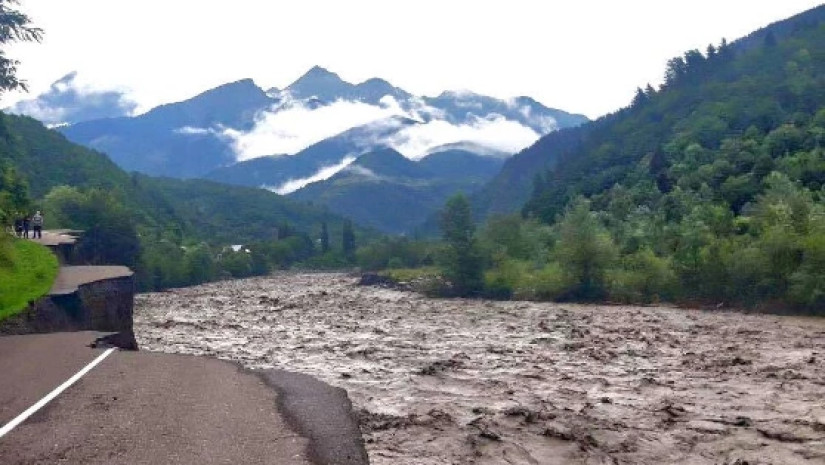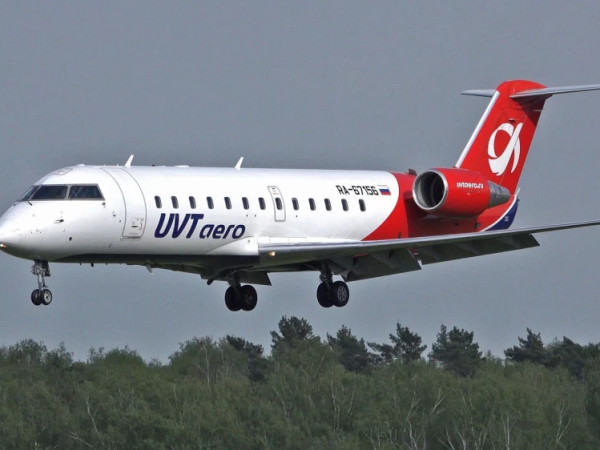In late July 2020, heavy rains and flash floods in northwest Georgia have caused significant damage to houses and infrastructure. The European Union is providing €80.000 in humanitarian funding to assist the most affected people following the disaster.
In late July 2020, heavy rains and flash floods in northwest Georgia have caused significant damage to houses and infrastructure. The European Union is providing €80.000 in humanitarian funding to assist the most affected people following the disaster.
This EU funding supports the Red Cross in delivering much needed relief assistance in the form of food parcels, hygiene kits and cash support to help those most affected cover their basic needs. The humanitarian aid will directly benefit 3,170 people whose homes were flooded or who lost their crops in the floods.
The funding is part of the EU's overall contribution to the Disaster Relief Emergency Fund (DREF) of the International Federation of Red Cross and Red Crescent Societies (IFRC).
As of 29 July 2020, heavy rains affected several regions of Georgia, among them Racha-Lechkhumi, Kvemo Svaneti, Guria, Imereti and Kakheti. Several villages remain isolated after riverbank protections, roads and bridges were destroyed in the floods. The rains have also caused heavy damage to agricultural lands, farms and fruit trees, which are the main source of income for many affected families.
The southern Caucasus is particularly prone to natural disasters and hazards. For several years, the EU has been supporting Disaster Risk Reduction under the Disaster Preparedness Programme (DIPECHO), which has contributed to increasing preparedness and reducing vulnerabilities of the most hazard-exposed communities.
Background
The European Union and its Member States are the world's leading donor of humanitarian aid. Relief assistance is an expression of European solidarity with people in need all around the world. It aims to save lives, prevent and alleviate human suffering, and safeguard the integrity and human dignity of populations affected by natural disasters and man-made crises.
Through the European Commission's Civil Protection and Humanitarian Aid Operations department, the European Union helps millions of victims of conflict and disasters every year. With headquarters in Brussels and a global network of field offices, the European Union provides assistance to the most vulnerable people on the basis of humanitarian needs.
The European Union is signatory to a €3 million humanitarian delegation agreement with the International Federation of Red Cross and Red Crescent Societies (IFRC) to support the Federation's Disaster Relief Emergency Fund (DREF). Funds from the DREF are mainly allocated to “small-scale” disasters – those that do not give rise to a formal international appeal.
The Disaster Relief Emergency Fund was established in 1985 and is supported by contributions from donors. Each time a National Red Cross or Red Crescent Society needs immediate financial support to respond to a disaster, it can request funds from the DREF. For small-scale disasters, the IFRC allocates grants from the Fund, which can then be replenished by the donors. The delegation agreement between the IFRC and ECHO enables the latter to replenish the DREF for agreed operations (that fit in with its humanitarian mandate) up to a total of €3 million.















